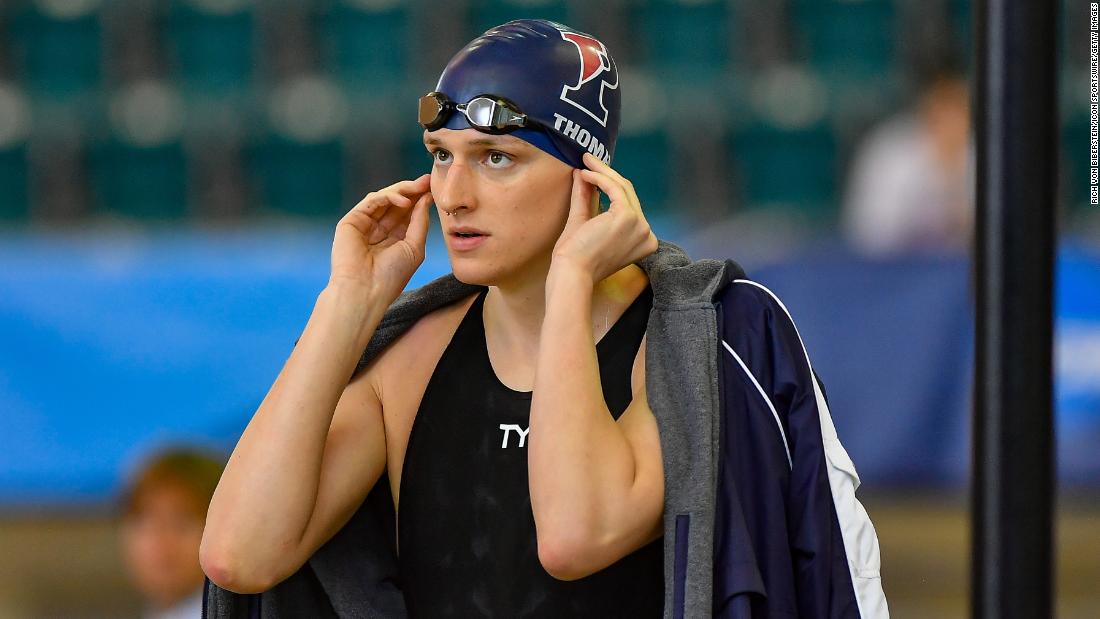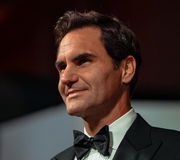

Amidst ongoing debates surrounding fairness in women’s sports, Lia Thomas’s case has sparked significant controversy. “I just want to swim. It’s that simple,” her words captured the fiery debate over her participation in women’s swimming events. However, the rules laid down by the WA and CAS stipulated that athletes transitioning from male to female should not be over the age of 12 and should not have passed the second stage of male puberty. Lia Thomas, having already completed three seasons as part of Pennsylvania’s men’s swimming team, did not meet these criteria.
Watch What’s Trending Now!
After a long and arduous legal battle, Lia Thomas finds herself worse than being back to square one. While other transgender athletes have had a chance to compete in the Olympics, her hopes are completely bashed. This case highlights the complex nature of inclusivity in sports and the ongoing debate over fairness and eligibility.
ADVERTISEMENT
The ban on Lia Thomas contrasts with opportunities for other transgender athletes
Recently in the report by the New York Times, they detailed just how big of an impact the Lia Thomas ban could have and how it will affect athletes everywhere. Apparently, the women on Princeton University’s team met with the executive director of the Ivy League athletic conference, Robin Harris, and described their plight. Harris had long since stated she is not transphobic and initially refused to change the rule mid-season. However, allowing trans women the right to compete against AFAB women has become a tough debate. Harris said, “the question of women in sport has become a culture war.”

ADVERTISEMENT
Eventually, female athletes who have undergone male puberty were banned from women’s sports, which terminated Lia Thomas’ Olympic dream. Some other athletes who have had some chance in the trans community are:
ADVERTISEMENT
- Renee Richards faced similar troubles as a professional tennis player. However, she was allowed to compete after her transition in 1975 and won the 35 and over singles in the 1980s.
- Chris Mosier, who transitioned to a man, has been included in the Hall of Fame triathlete as well as the All-American duathlete. He was a member of Team USA 7 times. He is a 3x Men’s National Champion.
- Joanna Harper has indeed made notable contributions not only as an athlete but also as a sports scientist. Prior to her transition, Harper was an avid runner, participating in numerous races and marathons. In 2004, she chose to start hormone replacement therapy and compete in sports as a woman, aligning her participation with her gender identity.
- In 2022, Iszac Henig, who was born a woman, transitioned to the men’s swimming team at Yale and became the first openly transgender male in the NCAA DI category. He has won at several swimming meets including the Ivy League Championships and has earned All-American honors. Hopefully, he will be able to compete on the elite stage soon.
Though the IOC has allowed trans athletes to compete as long as they have a testosterone level below a certain point, other agencies have not been so lenient.
Top Stories
Greg Biffle’s $4M Worth Prized Possession Still Without a Buyer Leaves NASCAR Fans Heartbroken

LIV Golf Braces for Another Possible Exit in Wake of Brooks Koepka Departure

Sean Payton Announces Retirement Plans as Broncos HC Demands Improvement From Bo Nix & Co. Before Playoffs

Biff Poggi All But Confirms Bryce Underwood’s Michigan Future After Announcing His Own Departure

Roger Federer Draws Criticism from Swiss Government Chief for Tourism Boom in Country

Amanda Balionis Confirms New Relationship Ending Months of Rumors

ADVERTISEMENT
Trans athletes who have competed on the elite stage before the ban
However, for a long time now, transgender athletes have already been participating in women’s categories. Notably, during the 2020 Tokyo Games, it was the first time openly trans athletes could perform. For example, Laurel Hubbard, a transgender weightlifter from New Zealand, made history as one of the few openly transgender women to compete. She had set records in the M105+ division and began hormone therapy in 2012.
In 2017, she returned to wrestling and won several elite titles. However, mixed reviews greeted her participation. Despite eventually retiring after a disappointing performance, her name will forever be etched into history. Moreover, Quinn, a Canadian trans soccer player was integral to their team. Their courage to come out and represent the trans community on a large stage like the Olympics speaks of enormous courage. Their team also won the gold medal in the 2020 Tokyo Olympics in women’s soccer.
Another notable athlete is Chelsea Wolfe. She’s a trans cyclist from the USA and was named an alternate for the US BMX Freestyle team. She competed against male athletes for several years before transitioning in 2014. These athletes demonstrate that within the trans community, many deserve the chance to showcase their talent in their chosen sport. Managerial organizations should create fair, inclusive rules that don’t penalize athletes for their gender identity.
ADVERTISEMENT
ADVERTISEMENT
ADVERTISEMENT
ADVERTISEMENT

